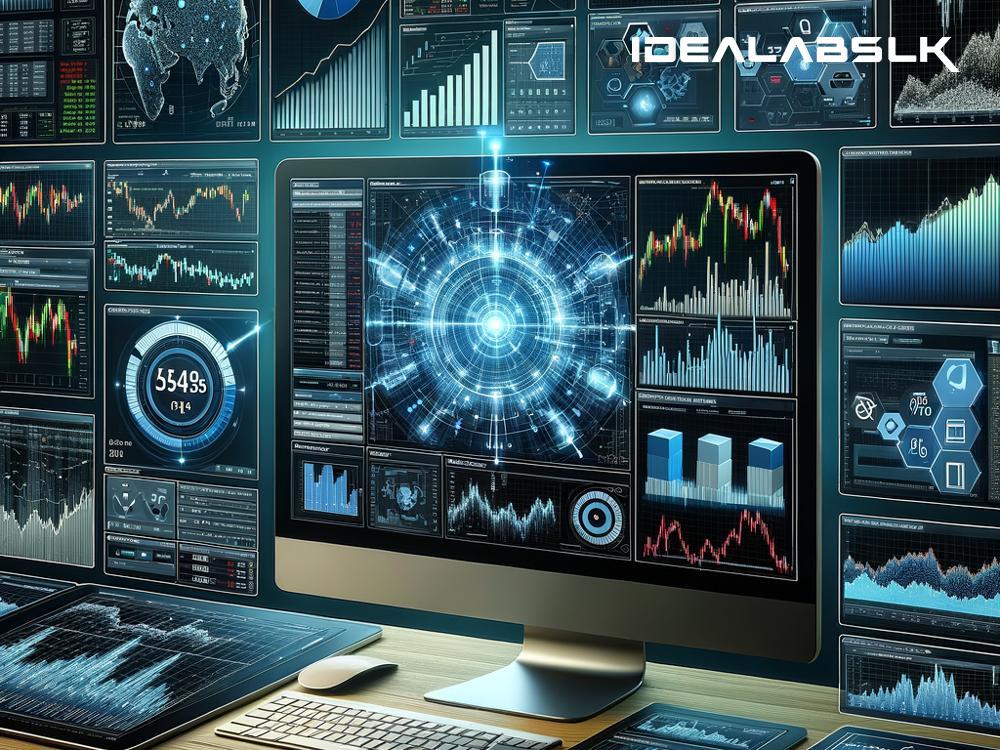AI in Trading: Using Machine Learning to Predict Stock Market Trends
Welcome to the future of trading! Have you ever imagined a world where computers can predict the rise and fall of stock market trends? This isn't science fiction anymore; it's happening now through the magical combination of artificial intelligence (AI) and machine learning (ML). Let's dive into how this fascinating technology is changing the way we approach the stock market.
What is AI and Machine Learning?
To put it simply, artificial intelligence (AI) is a branch of computer science that focuses on creating machines capable of performing tasks that typically require human intelligence. Machine learning, a subset of AI, is the process by which computers learn from data, identify patterns, and make decisions with minimal human intervention. It's like teaching a computer to learn from experience.
The Game Changer in Trading
Traditionally, trading decisions have been based on fundamental and technical analysis, requiring traders to spend countless hours poring over charts, financial statements, and market news. However, AI and machine learning are now turning the tables by automating the analysis of vast amounts of data to predict market trends.
How Does It Work?
-
Data Collection: The first step involves gathering historical data, which could include stock prices, trading volume, economic indicators, and news articles. The more data, the better.
-
Data Preparation: This raw data is then cleaned and prepared for analysis. It means fixing errors, removing irrelevant data, and converting it into a format that the machine learning models can process.
-
Model Training: The prepared data is fed into machine learning models, teaching them to recognize patterns and relationships between different data points. Think of it as teaching a child through examples.
-
Prediction: Once trained, these models can analyze new data and make predictions about future stock market trends.
-
Backtesting: Before trusting these predictions, models are backtested by comparing their forecasts with actual historical outcomes to evaluate their accuracy.
Benefits
- Speed: AI systems can process and analyze data much faster than a human ever could.
- Volume: They can simultaneously monitor and analyze thousands of stocks, something humanly impossible to match.
- Accuracy: By learning from vast amounts of historical data, AI can identify patterns that might be invisible to human traders.
- Emotionless Decisions: AI removes the emotional aspect of trading, making decisions based solely on data.
Applications in the Real World
Firms and investors are already leveraging AI in various ways:
-
Automated Trading: AI algorithms can execute trades at the best possible prices, taking into account market conditions, price, timing, and risk.
-
Risk Management: AI helps in predicting potential downturns and managing risks accordingly.
-
Portfolio Management: Also known as "robo-advisors", these AI systems can manage and optimize a diversified portfolio according to a user's risk tolerance.
Challenges and Considerations
While the benefits are significant, there are challenges to be mindful of:
-
Data Quality: The accuracy of AI predictions heavily depends on the quality of the data fed into machine learning models. Garbage in, garbage out.
-
Overfitting: There's a danger of creating models that perform exceptionally well on historical data but fail miserably in predicting future trends because they've been too finely tuned to past data.
-
Market Unpredictability: The stock market is influenced by countless factors, including human emotions, making it inherently unpredictable. AI predictions are not foolproof.
-
Ethical and Privacy Concerns: The use of AI in trading raises questions about fairness, privacy, and the potential for misuse of sensitive data.
The Bottom Line
AI and machine learning are revolutionizing the way we approach trading and stock market predictions. With their ability to process and analyze vast amounts of data quickly and accurately, they offer significant advantages over traditional methods. However, it's important to keep in mind the limitations and challenges. As this technology continues to evolve, it will undoubtedly become an even more integral part of the trading world.
In essence, we're witnessing just the beginning of an exciting journey. The fusion of AI and financial markets promises to bring about more efficient, rational, and potentially more profitable trading strategies. The key for traders and investors will be to stay informed and adapt to these technological advancements while always being mindful of the risks involved. Welcome to the new era of trading, where AI and machine learning lead the way!

